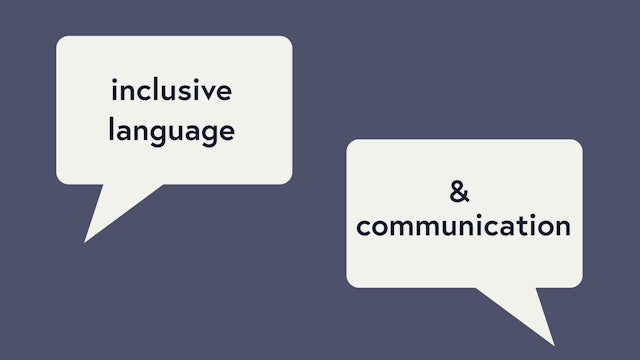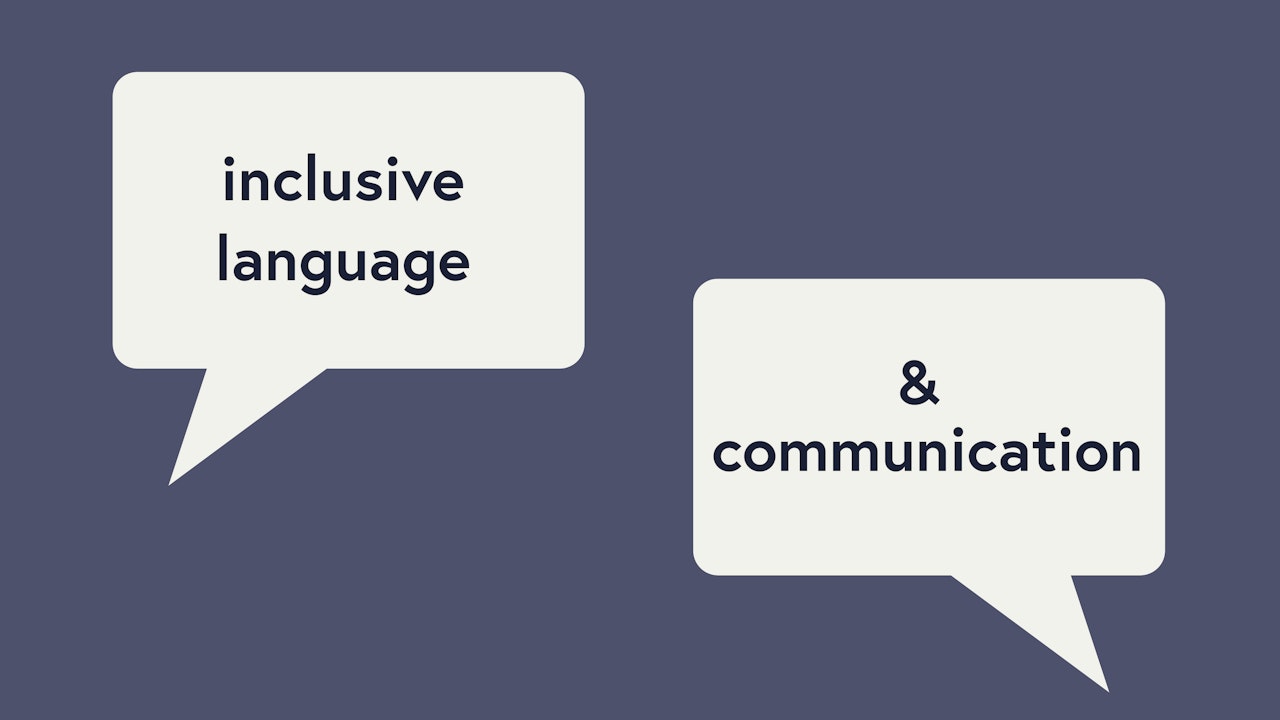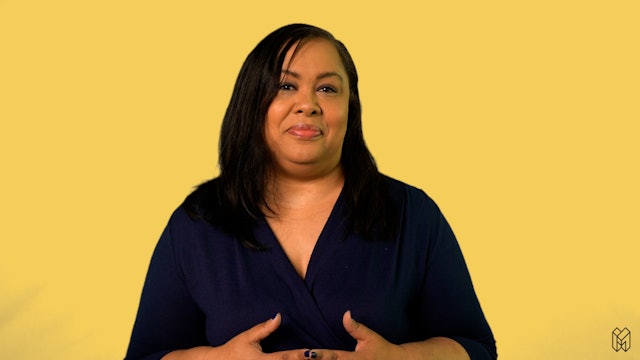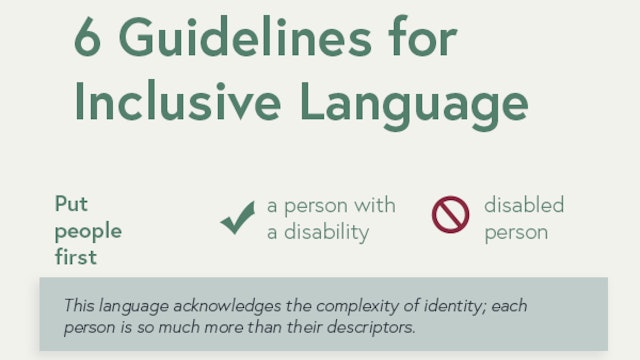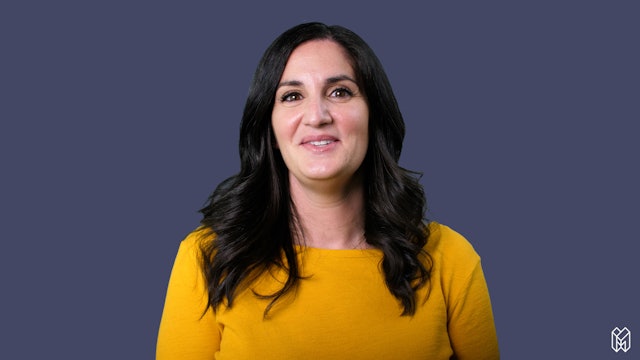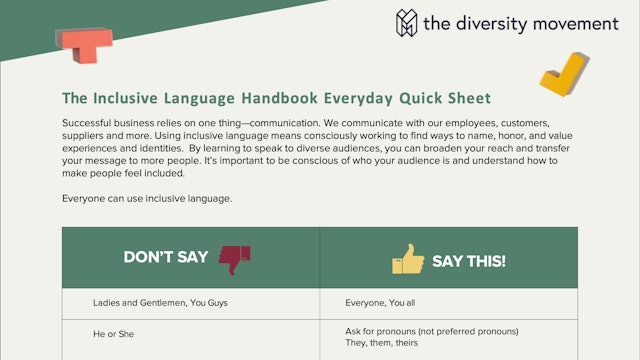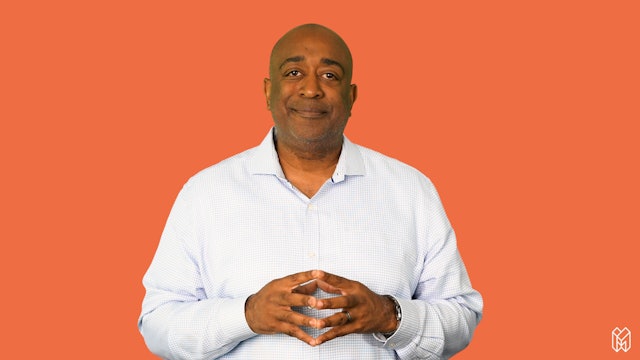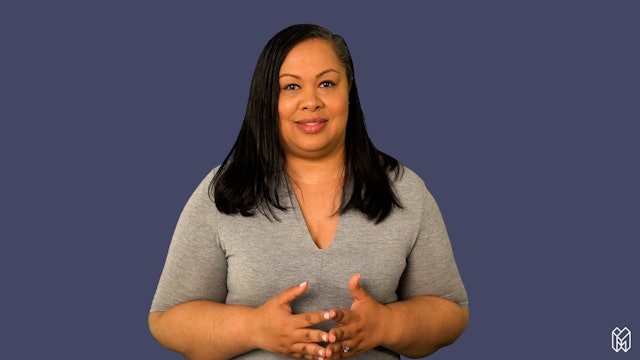-
3 Rules of Inclusive Language
Learn why inclusive language is important, and benefit from three insightful rules that will help you put people first by using language that is inclusive and respectful, both at your workplace and in all your daily interactions.
-
6 Guidelines for Inclusive Language
Delve into six great guidelines that will help you communicate inclusively. Learn to use language that respectfully recognizes people as individuals, versus the sum of their characteristics. Avoid the pitfalls of potentially offending or alienating others.
-
Inclusive Language Infographic
143 KB
-
10 Inclusive Language Blunders and How to Correct Them
Take a closer look at some everyday expressions and you may find they’re historically rooted in racial or gender prejudice. Consider some simple ways to replace these language blunders with inclusive language in order to promote a healthier corporate culture.
-
Inclusive Language for Mental Health & Cognitive Diversity
Find out how to communicate inclusively when discussing mental and emotional health and neurodiversity -- the natural variations in brain functioning for learning, thinking, and processing information. Learn to recognize and avoid language that is trivializing, derogatory, or insulting.
-
Why Are Courageous Conversations So Difficult?
Gain a deeper understanding of why courageous conversations are so difficult and awkward, especially in the workplace. Then, learn a few methods to bridge gaps and differences to make these conversations more comfortable and productive.
-
Inclusive Language for Acquired Diversity
Learn to recognize the importance of using language that avoids trivializing or falsely referencing real traumas others may have experienced. Understand why acquired diversity -- the sum of people’s lived experience -- is an asset to your corporate culture and creative problem-solving capacity.
-
Why Shouldn't I Say I'm Colorblind to Race?
Understand how saying “I’m color-blind to race” ignores societal biases and inequities that affect people of color and makes it difficult to be part of the solution or broaden our perspectives.
-
Inclusive Language for People with Disabilities
Improve your understanding and inclusive language skills specific to people with disabilities. Learn best practices for acknowledging each person’s full identity and capabilities, and how to steer clear of discriminatory and derogatory terms.
-
Getting to Know Your Coworkers Through Inclusive Language
You want to get to know your coworkers - their family structure, interests, and more - but you also want to make sure you're asking about them in the right way. This video details the correct language to use when getting to know new people.
-
Inclusive Language for Physicality
Get insightful guidance on promoting inclusion in the workplace by describing people using professional and appropriate language, rather than referring to a person’s physical appearance, or physicality -- a practice that is usually unnecessary and irrelevant.
-
Practicing Inclusive Language
In this scenario-based video, you will be exposed to inclusive language faux pas and ways to correct them. Learn when certain descriptors are necessary versus inappropriate, how to avoid evoking tragedy when it's not present, and why "normal" is a poor choice of words. Speaking up can be scary, b...
-
Inclusive Language Everyday Quick Sheet
110 KB
-
I Accidentally Misspoke; Now What?
Understand what to do during the awkward moment when you unintentionally offend a colleague or friend. Learn how to make it right and move on quickly.
-
Should I Say First Nations, Indigenous Peoples, or Native American?
Learn the different terms used to reference people indigenous to the United States, as well as best practices for referring to Native American people on their own terms.
-
Inclusive Language for All Genders
In this video, Roxanne breaks down 2 rules for how you can make your language more inclusive of all genders: 1) avoiding the universal use of "man" and 2) using the singular they.
-
Approaching Tough Conversations as an Ally
Benefit from this thoughtful analysis of how to handle challenging conversations on sensitive or personal topics. Learn how to approach difficult discussions as an empathic ally and how self-education can help you to minimize unnecessary and uncomfortable questioning of others.
-
Do's and Dont's of Gender Inclusive Language
Benefit from this helpful list of best practice do’s and don’ts to ensure your workplace language is gender-inclusive, welcoming, and comfortable for everyone. Gain clarity on pronouns, specific words to use (or avoid), and the importance of keeping up-to-date as language evolves.
-
What Should I Call Someone Who Is OCD?
Learn the respectful way to refer to someone who has obsessive-compulsive disorder, when it might be appropriate, and why you should never call someone OCD as a joke.
-
A 7 Step Guide to Civil Conversations
Discover this helpful 7-step process for productive discussions with those whose perspectives differ from your own. Learn how to have civil conversations that build trust, understanding, and mutual respect through curiosity, active listening, and verbal affirmations, versus trying to “win.”
-
Why is Inclusive Language Important?
Benefit from this insightful definition of inclusive language and how it helps people to feel safe, included, and valued. Recognize the damage caused by non-inclusive language. Learn about links between inclusive language and employee productivity and loyalty.
-
How To Be More Inclusive of Your Older Colleagues
Ageism in the workplace harms all employees and inhibits productivity and collaboration. However, there are ways to unlearn the assumptions people often make about older generations, enabling us to recognize the value all people bring to the workplace.
-
Should I Say African American, Black, or People of Color (POC)?
Review a variety of terms that are used to describe people’s race and or ethnicity. Confirm which terms are accurate, appropriate, and respectful of others. Raise your awareness to avoid using terms that are inaccurate and/or offensive.
-
What is Inclusive Language?
Analyze what’s meant by “inclusive language,” perhaps more deeply than you have before. Consider how inclusive language differs from being “politically correct.” Learn how this valuable method of communicating can help you better honor, engage, and connect with others.

